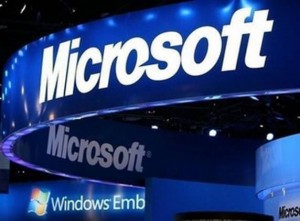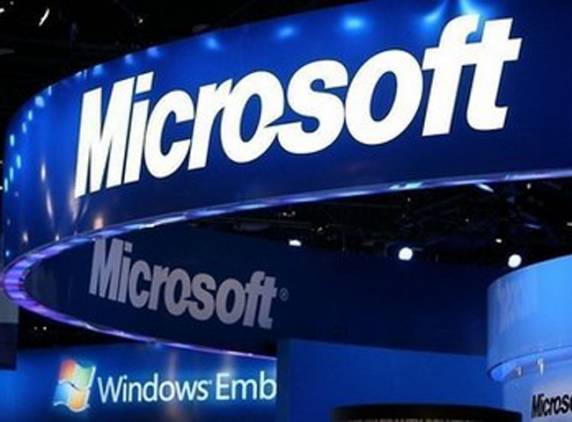
(Getty Images/AFP/File, Justin Sullivan)
AFP — Microsoft announced a new $40 billion share buyback on Tuesday as part of an effort by the transitioning US tech giant to return more cash to stockholders.
The tech giant, which has seen its stock stagnate in recent years, also said it was increasing its dividend by 22%, to 28 cents a share.
The new share buyback comes on the heels of another share repurchase plan announced in 2008, which was set to expire on 30 September.
“These actions reflect a continued commitment to returning cash to our shareholders,” said Microsoft chief financial officer Amy Hood in a statement.
The move comes with Microsoft in transition, having announced the departure of chief executive Steve Ballmer within a year.
Microsoft, which is trying to refocus the company around “devices and services” after missing the transition to mobile computing, also recently announced it was buying the mobile phone division of Nokia.
The maker of Windows software had been the undisputed leader of the tech sector for years, but it has recently been overtaken in market value by Apple and Google.
Microsoft shares rose by 0.59%, to close at $32.93. A buyback generally boosts the value of a stock by reducing the number of outstanding shares.
Keith Weiss, analyst at Morgan Stanley, said the news was a “modest” positive for Microsoft but noted that investors may be cautious because of the “struggling devices strategy.”
Citi analyst Walter Pritchard argued in a research note that “there is much more room for Microsoft to return more capital through dividend.”
Microsoft has more than $70bn in cash holdings, much of which is held overseas. Like Apple and some other tech firms, Microsoft has held off repatriating the cash, which could be subject to the top corporate tax rate of 35%.
The company has sent out invitations to a 23 September event, at which it is expected to unveil new Surface tablets to challenge the iPads and Android devices dominating the market.
The event, to be held in New York, occurs as the US technology giant struggles to remain relevant as Internet-age lifestyles shift from traditional computers to smart phones and tablets.
The company was forced to take an embarrassing $900m write down this year for “inventory adjustments,” due to poor reception of its tablet; it also cut the price of the Surface.
Microsoft is also holding its analyst day this week, where it will discuss the strategy and rationale behind the Nokia acquisition.
“Investors remain unconvinced of the logic behind the Nokia deal, thus management should clearly articulate why a smart phone presence is critical to the long-term success of Office and Windows,” Barclays analyst Raimo Lenschow said in a note to clients.
“Additionally, with many long-only investors unsure about how the new strategy will affect Microsoft’s financial model, we expect goalposts to be provided to help investors understand how the transition will play out.”
Lenschow said the buyback plan was in line with expectations, but that the time frame for the programme was not clear.
In the most recent quarter, Microsoft posted a profit of $4.97bn, held back by the write down for Surface.
Microsoft said its results were helped by growing revenues from business services, which offset the hit from a lagging market in personal computers.
Microsoft’s Windows remains the dominant platform for personal computers, but the PC market is being overtaken by tablets and other mobile devices.
A Gartner survey showed a worldwide drop of 10.9% in PC sales in the second quarter, compared with the same period a year ago, with PC shipments falling to 76 million units.
A separate survey by IDC projected that tablet shipments would surpass total PC shipments in the fourth quarter of 2013.




